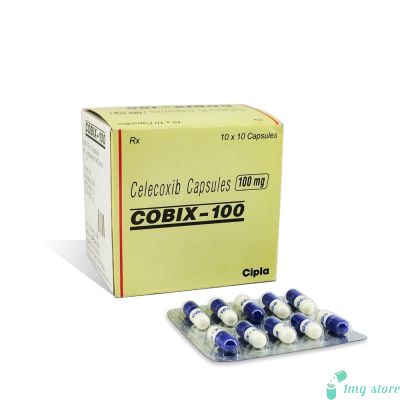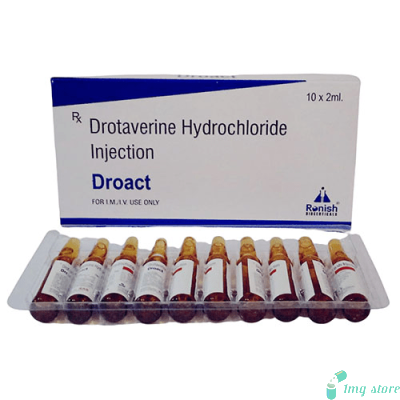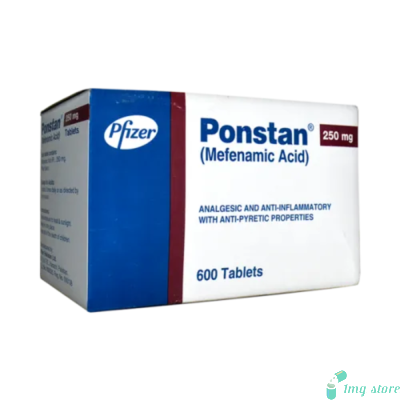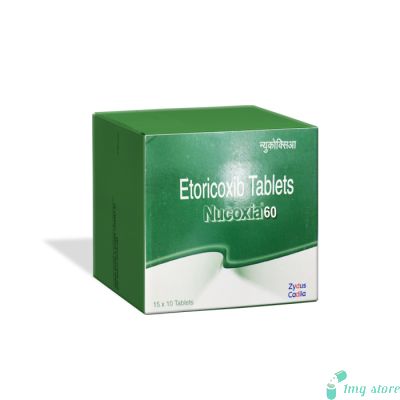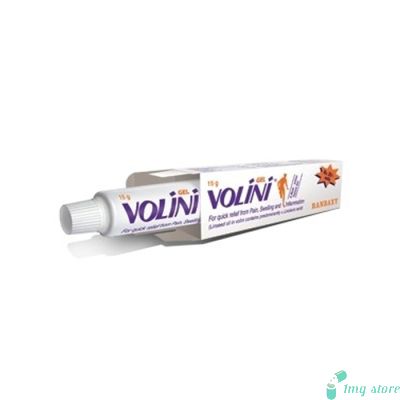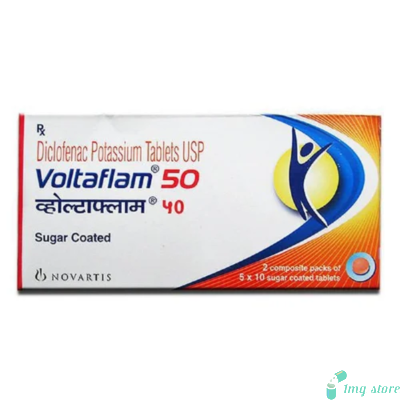Clotan Capsule (Tolfenamic Acid)
Tolfenamic Acid is a potent NSAID that belongs to the fenamate class of drugs. It is available in capsule form and is marketed under the brand names Clotan and Clotam
Clotan Capsule (Tolfenamic Acid): for Pain Relief
Pain can be a debilitating and distressing experience, often requiring effective medication to alleviate discomfort and improve the quality of life. Tolfenamic Acid, a nonsteroidal anti-inflammatory drug (NSAID), has emerged as a promising option for pain relief. This comprehensive guide will provide you with detailed information about Tolfenamic Acid Capsules, marketed as Clotan and Clotam, including their introduction, dosage information, uses, side effects, precautions, and drug interactions. Whether you're a healthcare professional or an individual seeking Pain Relief, this guide will equip you with valuable insights to make informed decisions regarding Tolfenamic Acid.
What are Tolfenamic Acid Capsules?
Tolfenamic Acid is a potent NSAID that belongs to the fenamate class of drugs. It is available in capsule form and is marketed under the brand names Clotan and Clotam. Tolfenamic Acid is primarily prescribed for its analgesic (pain-relieving) and anti-inflammatory properties. It is commonly used to manage various types of pain and inflammation, making it a valuable option for individuals seeking relief from conditions such as:
Musculoskeletal Pain: Tolfenamic Acid is often prescribed to alleviate pain associated with conditions like arthritis, rheumatoid arthritis, and musculoskeletal injuries.
Menstrual Pain: Many women experience severe menstrual cramps, and Tolfenamic Acid can provide effective relief by reducing uterine muscle contractions.
Dental Pain: Post-dental surgery or tooth extraction, Tolfenamic Acid can help alleviate the pain and inflammation that may occur.
Migraines: Some individuals find relief from migraine headaches by taking Tolfenamic Acid, as it can help reduce the severity and duration of these painful episodes.
Other Painful Conditions: Tolfenamic Acid may also be prescribed for pain associated with conditions like gout, kidney stones, and post-operative discomfort.
Understanding the appropriate dosage, as well as the consequences of missed doses and overdose, is essential to ensure the safe and effective use of Tolfenamic Acid.
Tolfenamic Acid Capsule Brands:
Tolfenamic Acid is available under different brand names, such as Clotan and Clotam. When considering this medication, it's important to be aware of these brand variations and consult with your healthcare provider to determine which one is suitable for your needs.
Dosage Information for Tolfenamic Acid Capsules
Dosage recommendations for Tolfenamic Acid Capsules (Clotan and Clotam) can vary depending on the specific condition being treated and individual patient factors. It is crucial to follow the guidance of a healthcare professional for your specific circumstances. However, here are general dosage guidelines:
Dosage for Adult Patients:
For Musculoskeletal Pain and Inflammation: The typical initial dose is 200 mg to be taken orally twice a day. Depending on the severity of the pain and inflammation, the dose can be increased to 200 mg three times daily. The maximum daily dose should not exceed 600 mg.
Menstrual Pain: The recommended starting dose for menstrual pain is 200 mg to be taken three times daily. It is advisable to begin treatment a day or two before the expected onset of menstrual pain. The maximum daily dose should not exceed 600 mg.
Dental Pain: After dental surgery or tooth extraction, the initial dose is often 200 mg, followed by 100 mg every 8 hours as needed for pain relief. The total daily dose should not exceed 600 mg.
Migraines: Tolfenamic Acid can be effective in managing migraines. The recommended dose is 200 mg at the onset of a migraine headache, followed by 100 mg every 8 hours as needed. The maximum daily dose should not exceed 600 mg.
Missed Dose:
If you miss a dose of Tolfenamic Acid, take it as soon as you remember. However, if it is close to the time for your next scheduled dose, skip the missed dose and return to your regular dosing schedule. Do not double the dose to catch up.
Overdose:
An overdose of Tolfenamic Acid can lead to serious health consequences. If you suspect an overdose, seek immediate medical attention. Symptoms of overdose may include nausea, vomiting, stomach pain, dizziness, confusion, and even unconsciousness.
Tolfenamic Acid Capsule for Sale:
You can find Tolfenamic Acid Capsules available for purchase on our website, 1mgstore.com. We offer a convenient and reliable platform for acquiring this medication.
Tolfenamic Acid Capsule Price Comparison:
Before making a purchase, it's a good practice to compare the prices of Tolfenamic Acid Capsules from various sources. This allows you to make an informed decision and potentially find the best deal for this medication.
Certainly, there are additional precautions to consider when using Clotan Capsule (Tolfenamic Acid)
- Cardiovascular Health: Individuals with a history of cardiovascular disease, hypertension, or heart-related conditions should exercise caution when using Tolfenamic Acid. NSAIDs, including Tolfenamic Acid, may increase the risk of heart attacks, stroke, and blood clot formation, especially with prolonged use.
- Gastrointestinal Issues: If you have a history of gastrointestinal disorders, ulcers, or bleeding in the digestive tract, inform your healthcare provider. Tolfenamic Acid can exacerbate these conditions and may require alternative pain management options.
- Kidney Function: Individuals with impaired kidney function or a history of kidney disease should be closely monitored while taking Tolfenamic Acid. This medication can affect renal function and may necessitate dose adjustments.
- Asthma: Tolfenamic Acid can potentially worsen asthma symptoms or trigger asthma attacks in some individuals. Discuss your asthma history with your healthcare provider before starting this medication.
- Drug Allergies and Interactions: Inform your healthcare provider about all medications, supplements, and herbal remedies you are taking. Tolfenamic Acid can interact with other drugs, potentially causing adverse effects or reducing its effectiveness.
Tolfenamic Acid Capsules, available as Clotan and Clotam, offer a range of therapeutic uses:
- Pain Relief: Tolfenamic Acid is primarily prescribed for its potent analgesic properties. It is effective in managing various types of pain, including musculoskeletal pain, dental pain, menstrual pain, and migraines.
- Anti-inflammatory Action: As an NSAID, Tolfenamic Acid also possesses anti-inflammatory properties. It can help reduce inflammation in conditions like arthritis and rheumatoid arthritis.
- Menstrual Pain Management: Tolfenamic Acid is a valuable option for women experiencing severe menstrual cramps. It works by reducing uterine muscle contractions and providing relief from painful menstruation.
- Dental Surgery: After dental surgery or tooth extraction, Tolfenamic Acid can be prescribed to alleviate post-operative pain and inflammation.
- Migraine Treatment: Some individuals find relief from migraine headaches by taking Tolfenamic Acid. It can help reduce the severity and duration of migraine attacks, improving overall quality of life.
A few of the subsequent impacts stemming from Clotan Capsule (Tolfenamic Acid)
While Tolfenamic Acid can be an effective pain relief option, it may also be associated with certain side effects. It's essential to be aware of these potential side effects and consult your healthcare provider if you experience any adverse reactions. Common side effects may include:
- Gastrointestinal Issues: Tolfenamic Acid can irritate the stomach lining, potentially leading to symptoms such as nausea, indigestion, abdominal pain, and even ulcers in some cases. Taking the medication with food or antacids can help mitigate these effects.
- Headache and Dizziness: Some individuals may experience headaches or dizziness as a side effect of Tolfenamic Acid.
- Skin Reactions: Rarely, Tolfenamic Acid can cause skin rashes or hives. If you notice any unusual skin changes, contact your healthcare provider.
- Hypersensitivity: In rare cases, individuals may be hypersensitive to Tolfenamic Acid, leading to severe allergic reactions such as swelling of the face, lips, tongue, or throat, and difficulty breathing. Seek immediate medical attention if you experience these symptoms.
- Liver and Kidney Function: Prolonged use of Tolfenamic Acid may affect liver and kidney function. Regular monitoring of liver and kidney function is advisable during long-term treatment.
It's important to note that the occurrence and severity of these side effects can vary from person to person. Your healthcare provider will weigh the potential benefits against the risks when prescribing Tolfenamic Acid.
Frequently Asked Questions about Tolfenamic Acid Capsules
Q1. Can Tolfenamic Acid Capsules be taken on an empty stomach?
Yes, but it is generally recommended to take them with food or milk to minimize the risk of stomach irritation.
Q2. Is Tolfenamic Acid safe for long-term use?
Prolonged use may affect liver and kidney function, so it should be used under medical supervision and with regular monitoring.
Q3. Can Tolfenamic Acid be used during pregnancy?
It is not recommended during the third trimester due to potential risks to the fetus. Consult your doctor for guidance during pregnancy.
Q4. Are there any age restrictions for Tolfenamic Acid use?
It should be used cautiously in the elderly, as they may be more susceptible to side effects, particularly gastrointestinal issues.
Q5. Can Tolfenamic Acid be combined with other pain medications?
It's essential to consult a healthcare professional before combining Tolfenamic Acid with other pain relief medications to avoid potential drug interactions or increased side effects
Combining different drugs with Clotan Capsule (Tolfenamic Acid)can lead to Adverse Effects
- Other NSAIDs (Nonsteroidal Anti-Inflammatory Drugs): Concurrent use of Tolfenamic Acid with other NSAIDs, such as ibuprofen or aspirin, can increase the risk of gastrointestinal bleeding and ulceration. Combining multiple NSAIDs should be avoided unless specifically directed by a healthcare professional.
- Anticoagulants (Blood Thinners): Tolfenamic Acid may interact with anticoagulant medications like warfarin, increasing the risk of bleeding. Close monitoring of blood clotting parameters is essential if these drugs are used together.
- Antiplatelet Agents: Combining Tolfenamic Acid with antiplatelet drugs like clopidogrel may also elevate the risk of bleeding. Your healthcare provider should carefully evaluate the benefits and risks of such a combination.
- Selective Serotonin Reuptake Inhibitors (SSRIs): Some SSRIs, commonly used as antidepressants, can increase the risk of bleeding when taken with NSAIDs like Tolfenamic Acid. Discuss any SSRI medications you're taking with your healthcare provider.
- Corticosteroids: Concurrent use of Tolfenamic Acid with corticosteroids, such as prednisone, may increase the likelihood of gastrointestinal ulcers and bleeding. Your doctor should monitor you closely if you require both types of medications.
| Manufacturer | : | Torrent Pharma, India |
| Equivalent Brand | : | Clotam |
| Generic Search | : | Tolfenamic Acid |









